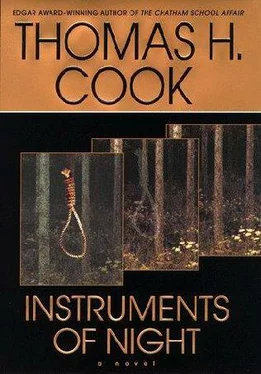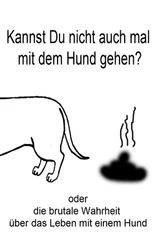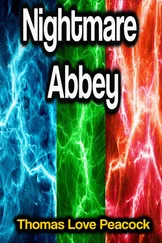Thomas Cook - Instruments of Night
Здесь есть возможность читать онлайн «Thomas Cook - Instruments of Night» весь текст электронной книги совершенно бесплатно (целиком полную версию без сокращений). В некоторых случаях можно слушать аудио, скачать через торрент в формате fb2 и присутствует краткое содержание. Жанр: Триллер, на английском языке. Описание произведения, (предисловие) а так же отзывы посетителей доступны на портале библиотеки ЛибКат.
- Название:Instruments of Night
- Автор:
- Жанр:
- Год:неизвестен
- ISBN:нет данных
- Рейтинг книги:3 / 5. Голосов: 1
-
Избранное:Добавить в избранное
- Отзывы:
-
Ваша оценка:
- 60
- 1
- 2
- 3
- 4
- 5
Instruments of Night: краткое содержание, описание и аннотация
Предлагаем к чтению аннотацию, описание, краткое содержание или предисловие (зависит от того, что написал сам автор книги «Instruments of Night»). Если вы не нашли необходимую информацию о книге — напишите в комментариях, мы постараемся отыскать её.
Instruments of Night — читать онлайн бесплатно полную книгу (весь текст) целиком
Ниже представлен текст книги, разбитый по страницам. Система сохранения места последней прочитанной страницы, позволяет с удобством читать онлайн бесплатно книгу «Instruments of Night», без необходимости каждый раз заново искать на чём Вы остановились. Поставьте закладку, и сможете в любой момент перейти на страницу, на которой закончили чтение.
Интервал:
Закладка:
Graves was still watching the woman a few minutes later, the tale developing effortlessly in his mind. By then Kessler had engaged her in conversation, the two of them nodding and smiling, the old woman quite flattered by the unexpected attention of such an interesting and well-mannered gentleman. While they talked, snow fell over the streets outside, blanketing Edwardian New York in a dream of purity, horse-drawn carriages struggling through its ever-deepening mounds. Inside the great terminal, gaslights flickered and coal glowed red in the heating stoves, steaming the nearby windows as Kessler gave the signal and Sykes crept forward tremblingly, his pale, boyish face in shadow beneath the wide bill of a tattered cap, his hands nervously slapping snow from the shoulders of a ragged wool cape.
The plan was now in operation. Graves could feel the odd heat that always rose in Kessler at such moments, how moist his fingers became as they toyed with the slender cord he kept coiled in the pocket of his leather coat.
Sykes’ shadow had just fallen over the old woman’s face when Graves heard the announcer call his destination. He rose and headed for his bus, glancing only briefly toward the woman with the muffin. She was alone now. Kessler was no longer seated beside her, but returned to Graves’ mind, the gray chamber where he lived, silent, sinister, forever plotting his next violation, the instruments he would use to pass the night.
Despite the traffic, the bus moved smoothly up the West Side Highway, across the George Washington Bridge, and finally through a ring of squat suburban towns. The trees and fields swept in after that, and Graves gazed out the window and looked for deer, hoping that no human being would come into his view, since, inevitably, the sight of some isolated figure on a deserted country road would summon images he could not easily shake off.
It was mid-afternoon when the bus reached its destination of Britanny Falls, a village snuggled among the hills of the Hudson Valley. Graves remained seated while the other passengers left the bus. It was a tactic he routinely employed in order to avoid the uneasy sensation of having people close in from behind him. Just outside the window, he noticed a small, slender woman in a flowered dress. She had shimmering blond hair and looked to be in her early twenties. A little girl stood beside her, clinging to a cone of ice cream. The woman was talking to a short, portly man in drab work clothes, and as they talked, she often threw back her head and laughed. Watching her, Graves guessed that in all likelihood she could not imagine the possibility that at that very moment, as she bade good-bye to the man in work clothes and headed for her car, idly reaching for her daughter’s hand, one of Kessler’s countless minions might be peering through the slit in her kitchen curtains, staring out at her empty driveway, waiting. For as Graves knew, until it happened to you, until you’d seen it eye to eye, smelled its breath, you could not imagine how quickly terror could fall upon you, do its hideous damage, then leave you, if not dead, then partly dead. Dead to the love of open spaces and solitary walks. Dead to the pleasures of silence and the peace of empty rooms. Even dead to other people, to the as-yet-unharmed, the world irrevocably divided between those so darkened by experience they saw evil everywhere, and those who, having never felt its grip, saw it not at all. But more than anything, dead to the comforting notion that terror’s depths were not infinitely deep, fear not the marrow in our bones.
CHAPTER 2
The invitation had instructed Graves to remain at the bus stop at Britanny Falls, assuring him that transportation to Riverwood would be provided. He sat on the wooden bench, watching as the town’s life unfolded before him. In its leisurely pace and unruffled tone, it reminded him of the small North Carolina town not far from the farm where he’d lived for the first twelve years of his life with his mother and father and his older sister, Gwen. Like Britanny Falls, Claytonville had been a peaceful, unhurried place. Graves could remember how utterly unthreatened he’d felt as he moved freely down its one main street, how casually his mother had talked to Mr. Casey, who ran the general store, or to Mr. Banks, who sold farm goods and occasionally made small loans or extended credit to the farm families who lived in the surrounding area.
As a family, they’d gone into town nearly every Saturday, all four of them piled into an old ’56 Ford. It was a battered car, the color of dishwater, with only three hubcaps, the radio antenna broken off. His father had called it the “Old gray mare,” and sometimes kicked gently at its threadbare tires with a comical affection.
Jasper Graves had been a tall, lanky man, and each time Graves remembered his father, it was first as a long, lean shadow moving fluidly across newly seeded fields. He’d worn overalls and a weathered hat that his sweat had soaked through so many times the felt had finally taken on a look of perpetual dampness. He’d been oddly shy around strangers, but quick and lively when at home, forever making jokes and acting boyish. He could imitate animals, particularly the old brown dog that had suddenly appeared in the yard one day and never left. He’d named her Ruby for some reason that had never been explained, and Graves could recall sitting on the front steps, watching his father lope languidly past, his eyes taking on the same laziness as Ruby’s, moving at the same slow pace across the yard, his hands cupped over his ears, until he stopped, stared about, the right hand jerking up suddenly, just like Ruby’s did when she suddenly heard something unfamiliar, the screech of a crow or the distant rumble of an approaching car. Then he’d grin or give a wink and continue on toward the barn or the chicken coop, his shadow following behind like a ragged cape.
But it was his mother Graves most often recalled when he suddenly found himself reminded of his boyhood. His father had been a gentle, kindly man, and there’d been something docile and accepting about him, something that never looked for anything beyond the nearby fields. His mother, on the other hand, had had a curious drive, a keen sense that beyond her world there was another one she yearned to see. On summer evenings, when her chores were done, she would sometimes sit on the porch, thumbing through magazines, gazing at photographs of faraway places. She knew that the great cities were out of the question, that there would never be either the time or the money to visit such extravagant sites. And so she thought of Florida, instead, and on those few occasions when the truly far-fetched took hold of her imagination, she even contemplated the prospect of a trip to California. Once, she’d actually gone so far as to mention the possibility to her husband. Graves remembered how his father had not so much as glanced up from the local paper before making his reply, “Lord, Mary, you know the old gray mare couldn’t ever make a trip like that.”
But it had been the old gray mare that had taken them away on that last day. “We’ll be back by supper time,” his mother had said as he and Gwen stood in the yard that summer morning. She had knelt and run her fingers through his hair. “You be good now, Paul.” His father had laughed at that. “He’s practically grown-up, Mary,” he’d gently scolded his wife as he bent and grasped his son’s small, round shoulders. “You be the man around here until we get back,” he’d said with a smile. Then he offered his familiar wink and uttered a line that haunted Graves still, particularly on summer nights, when the darkness seemed arrayed against him, something watching him sleeplessly from its black depths, Don’t let nothing happen to your sister.
Читать дальшеИнтервал:
Закладка:
Похожие книги на «Instruments of Night»
Представляем Вашему вниманию похожие книги на «Instruments of Night» списком для выбора. Мы отобрали схожую по названию и смыслу литературу в надежде предоставить читателям больше вариантов отыскать новые, интересные, ещё непрочитанные произведения.
Обсуждение, отзывы о книге «Instruments of Night» и просто собственные мнения читателей. Оставьте ваши комментарии, напишите, что Вы думаете о произведении, его смысле или главных героях. Укажите что конкретно понравилось, а что нет, и почему Вы так считаете.












